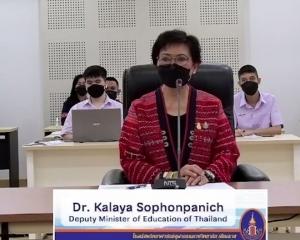A University of Otago College of Education director is warning the end of New Zealand's economic recession may set off a chain reaction of retirements among senior secondary school staff, causing a nationwide shortage of teachers.
Secondary Programmes co-director John Taylor said there was anecdotal evidence which showed teachers in the 55-60 age group were holding on to their jobs instead of retiring.
"They had been planning to retire, but because of the recession, their financial situation is not as rosy as they had hoped.
"A lot of these teachers have retirement investments which may have taken a hit during the recession. So they've been encouraged to hold on a bit longer."
Mr Taylor predicted that once the economy picked up again, senior teachers would begin retiring in large numbers.
As to when the teacher shortage would become evident, Mr Taylor said it depended on how long New Zealand's economic downturn lasted.
"Having said that, there are some areas where there are shortages already. We have a shortage of teachers in maths, English, technology and Maori.
"There are also shortages of teachers in low decile and rural schools at the moment - they are finding it hard to recruit teachers."
However, he said the good news was, although the recession was part of the problem, it may also be part of the solution to the looming shortage.
The economic downturn had prompted the largest number of people to apply to train as teachers in the college's history, he said.
"That may very well be the solution to our problem.
"Staffing is a very complex issue. There are a lot of forces working in counterbalance to each other."
Despite the predicted influx of student teachers, Mr Taylor said it may not be enough to fill the vacancies left by senior teachers.
Ministry of Education Workforce group manager Fiona McTavish said the ministry's regional monitoring of teacher supply took into account the age demographics of the workforce, and trends in similar sectors nationally and internationally.
This helped the ministry anticipate and plan for teacher demand.
She said the ministry had a range of initiatives to increase, retain and improve the quality of the teaching workforce.
These included promotion of teaching through career fairs, the TeachNZ website and advertising.
Other initiatives included the voluntary bonding scheme, national and international relocation grants, TeachNZ scholarships and study awards for teachers, she said.











